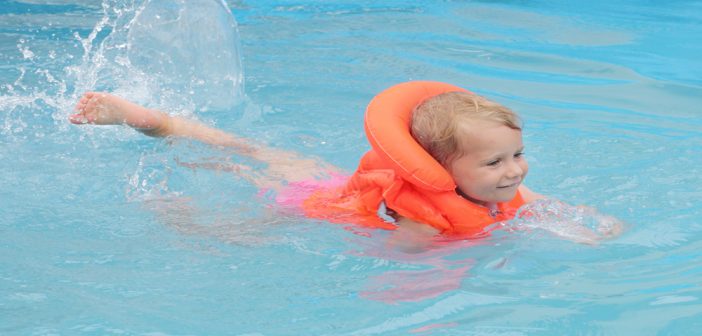Whether you are someone who enjoys the passive tides of a shallow springwater fed lake or a thrill seeker who likes to witness the awesome power of giant breakers pounding the shore, there are a variety of water safety tips and precautions to consider.
Rogue Waves
Worldwide, drowning is the leading cause of death. If you inhale as little as two tablespoons of water, you can drown. If you are not going to be personally teaching your children how to swim in a freshwater lake or pool before hitting the big oceans, your child is at grave risk of getting knocked unconscious or drowning from a rogue wave. It only takes a few distracted seconds for a large wave to suck up your kids from the sandcastle they were building. In any case, the ocean is not an easy place for beginners to swim. The necessity of adequate supervision over young children playing at the beach is paramount.
It is further advised that parents secure their young children with U.S. Coast Guard approved lifejackets. In the event of an emergency like a rogue wave, the child will have some level of protection. However, parents should not rely on lifejackets and disregard supervision. A child can still be severely injured or killed by the blunt force trauma of being smacked around by powerful breakers. This is especially true if there is any underwater debris.
The waves are so powerful that they can cause paralysis and death in full grown adults. Many muscle sprains and injuries have been attributed to rogue breaker waves that swimmers are not prepared to handle. A lot of expensive sunglasses have been swallowed up by rogue waves trampling down people simply wading in the shoreline. These waves can knock you off your feet and knock you unconscious or drown you in a matter of seconds. Unless you are an experienced ocean swimmer or surfer looking for raw waves, you will probably want to stay in the zones marked by green flags that denote the calmness of the waves and overall safety of the area.
Riptides
Riptides are a very dangerous reality of ocean vacations. They usually develop close to piers and jetties. Experts advise that you keep a distance of 100 feet from these structures to avoid being captured by a rip-current. The riptides are like invisible fast-moving rivers within the mass of tides and currents making up the ocean. Many experienced swimmers have been sucked deep into the vastness of the ocean by swimming in unsupervised areas and getting taken for a ride. For this reason, it is better to swim parallel with the shoreline and to swim perpendicular to any currents that seem to be pulling you forcefully in any given direction.
Dangerous Aquatic Life
Even the best swimmers can quickly get run down and fatigued on a hot day. It is easy to forget how your body will react in real-world situations and place yourself beyond the scope of help and safety. Never go swimming anywhere if a lifeguard is not on duty. These unsupervised terrains can be deadly from jellyfish infestation or subterranean debris. Jellyfish are now considered to be the cockroaches of the ocean. Some species have the potential of producing lethal strings with the poisonous darts on their tentacles, especially if the victim is allergic.
Shark attacks are very rare. That being said, they can occur in limited freshwater locations by bull sharks as well. The Great White Sharks that come to mind in a shark attack (from their infamy in the movie Jaws) are not the only culprits; bull sharks and tiger sharks also have a taste for people. This is because we give off the type of awkward electric pulses that signal an animal in distress. Sharks have special organs that sense motion in the same way that we hear and come closer to investigate. The smell of a band-aid in the water may be enough to spark a desire to feed.
No matter what sort of adventure you have in mind, always be sure to ask the locals for tips. They may recommend a better beach for your needs nearby or lead you to fun boating rentals and other water activities that spark your interest. Stay safe and enjoy the beaches before the global warming causes the tides to rise, putting everything under water.








